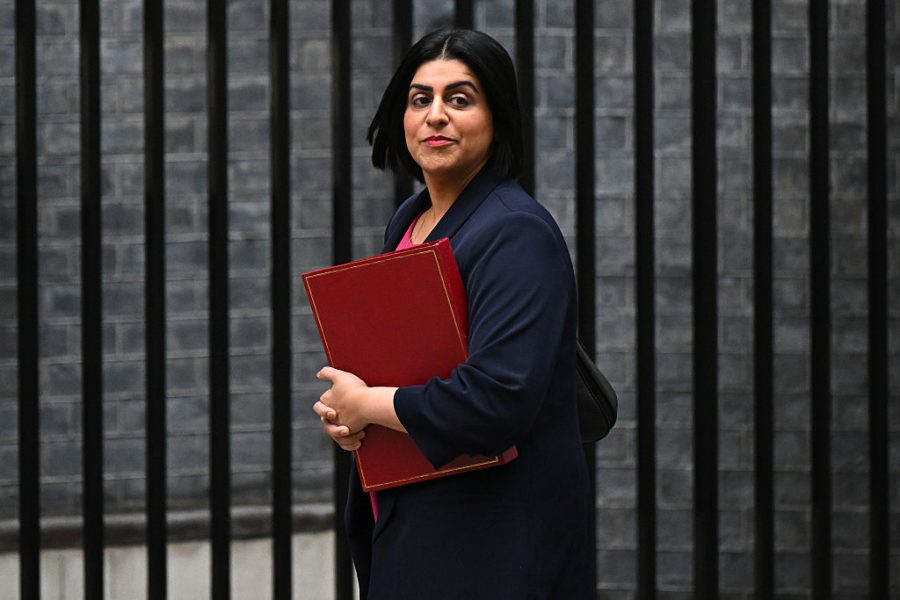Shabana Mahmood is a bright minister among a cabinet of duds, dealt a difficult hand and playing it rather well. There was a good deal to like about her speech this afternoon, launching the document describing the government’s plans to deal with refugees and deportation.
The idea of reviewing refugee status every 30 months, with a view to ending it if the country of origin is no longer dangerous, is overdue. That temporary unrest in a particular state should entitle those at the sharp end automatically to claim permanent rights to remain here is wrong, however much they may prefer their settled life in Britain, when this negatively impacts native Britons. Limiting refugees’ rights to bring numerous family members apart from immediate relatives is also right; we need to stop refugee status becoming a means of backdoor immigration for large (often very extended) family groups. Making the Home Office’s duty to provide support such as housing less onerous will help deal with those who make trouble. Equally vital are limitations on the right of illegal arrivals to apply for citizenship (up from 5 years to 20 years) and on lawfare by, as far as possible, restricting appeals and reducing opportunities for throwing last-minute spanners into the works by raising eleventh-hour modern slavery points.
Predictably, a number of Mahmood’s own party are unhappy, including human rights activist Tony Vaughan KC, persistent troublemaker Brian Leishman and veteran stirrer Stella Creasey. But the proposals make sense. Kemi Badenoch rightly said in the House that the Tories would provide support for them: Nigel Farage should do the same for Reform.
The logical solution is ECHR exit
The good news is that Shabana may actually be able to get at least some of these proposals through, especially if the Opposition plays ball. It’s worth remembering that even within Labour the open borders awkward squad is matched by an (admittedly smaller) group on the right of the party, sitting for not very well-off constituencies, who see the difficulties caused by excessive immigration to both their constituents and their own electoral chances.
The bad news lies in the continuing baneful effect of the ECHR. A number of high-profile cases have shown what many would regard as some fairly flimsy excuses successfully raised against deportation on the basis of it. Even if courts actually stop relatively few deportations on direct human rights grounds, the shadowy background presence of the ECHR almost certainly causes the Home Office not to resist a large number of claims to stay and makes enforcement of a proper asylum system very difficult indeed.
The Home Secretary’s problem is how to deal with two articles of the Convention. One is article 3, dealing with inhuman or degrading treatment. Once thought of as aimed merely at torture and similar measures by member state governments, this now is interpreted as on occasion preventing people, however abusive their claim, from being deported to a country where they would face ill-treatment by even non-state actors. The other is article 8, nominally protecting family life, but now on occasion preyed upon to prevent deportation on the basis that it would interfere with any relatively serious relationship formed in this country.
On Article 8, Mahmood plans legislation to control its interpretation by UK courts with a view to reducing the scope for invoking family life as a shield against deportation. Unfortunately, this is highly problematical. The interpretation of the ECHR lies not with the British government but with the human rights court in Strasbourg; UK legislation is likely merely to cause a clash with Strasbourg and a finding of incompatibility.
On the more emotive article 3, dealing with inhuman or degrading treatment, the plan is, we are told, to push for an international agreement to reform it to make deportations easier. While this may sound like sweet reasonableness, it is even more difficult. The only way this would be possible would be for all 45 other members of the Council of Europe to agree to the change. Put bluntly, that’s not going to happen; to make it the basis of government policy is disingenuous.
The logical solution is ECHR exit, now adopted by the Tories and Reform and whispered by even a number of Labour MPs from the Red Wall. Unfortunately, for Labour this is a no-go area. Both Keir Starmer and his Attorney General, Lord Hermer, are veteran human rights lawyers, and the latter has nailed the party’s colours to the mast for a policy of remaining a member and obeying the Convention implicitly.
Faced with this, Shabana is painted into a corner. She must say, and has said, that she will not withdraw from the ECHR. As a good lawyer, she knows that she is putting forward human rights policies that she cannot substantiate. Unfortunately, stuck as she is between the rock of Strasbourg and the hard place of Hermer’s human rights fundamentalism, she has no choice.







Comments